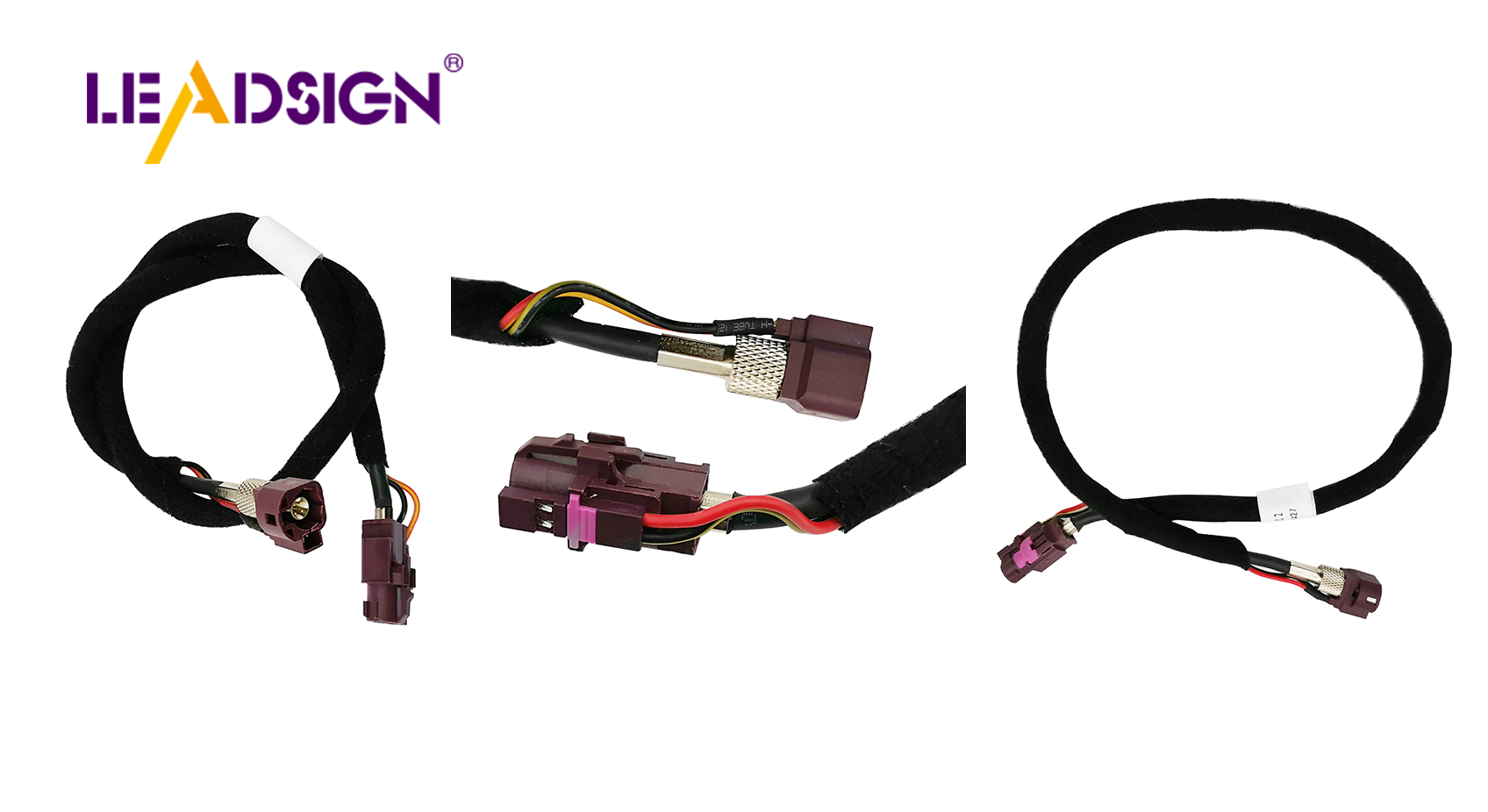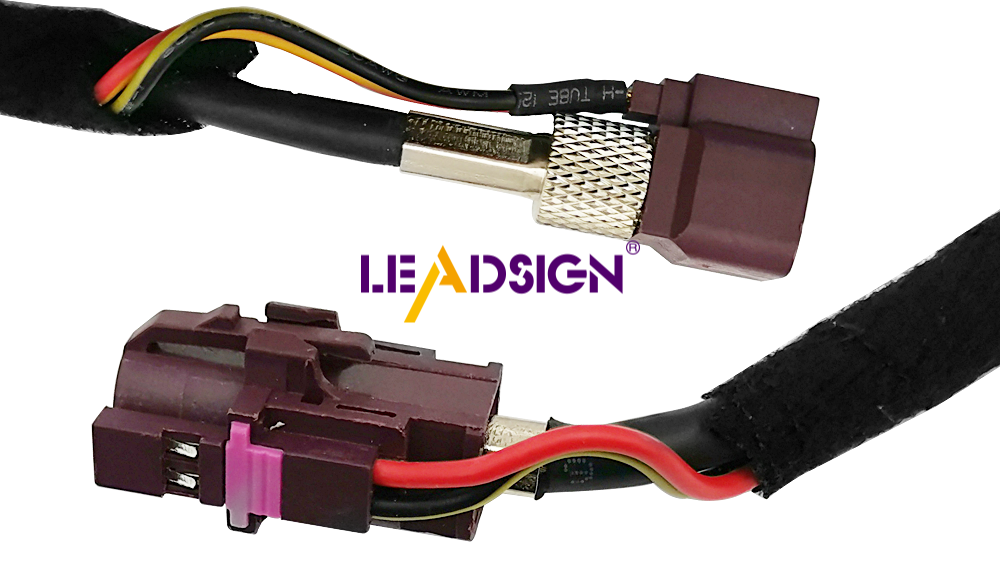Discover the Best Types of Wire Connectors for Automotive Use

Selecting the appropriate car wire connector types is crucial for ensuring the efficient and safe operation of your vehicle's electrical systems. There is a wide range of car wire connector types available, each designed to cater to specific requirements and scenarios. This guide aims to familiarize you with the various car wire connector types, empowering you to make informed decisions for your automotive endeavors.
Understanding Wire Connectors
What are Wire Connectors?
Definition and Functionality
Wire connectors are important parts in cars. They join wires together so electricity can flow easily. Think of them as bridges linking your car's electrical parts. These connectors help power and data move smoothly, making sure all electronic parts work well together. Without them, your car's electrical systems would have trouble working right.
Importance in Automotive Systems
In cars, wire connectors are very important. They do more than just connect wires; they keep things safe and reliable. Imagine driving without lights or a radio that works. Wire connectors make sure these things work by keeping connections strong and secure. They stop electrical problems that could cause bigger issues later on. Picking the right connectors keeps your car's systems running safely.
Common Materials Used
Metal Connectors
Metal connectors are used a lot in cars because they last long and conduct electricity well. Metals like copper, brass, and bronze are common because they let electricity pass easily and don’t rust much. You find metal connectors where reliability is key, like in engines or power areas.
Plastic Connectors
Plastic connectors give flexibility and insulation. They're used where weight and cost matter more. They don’t carry electricity like metals but protect against moisture and dust well. Plastic ones are great for inside wiring where protection is more needed than conducting electricity.
By knowing about these materials, you can choose the best wire connectors for your car needs. Whether you need good conductivity or protection, there's a connector type for you.
Exploring Car Wire Connector Types

When you look at car wire connectors, you'll see many kinds. Let's check out some popular ones and how they help in car projects.
Butt Connectors
Features and Benefits
Butt connectors are important for joining wires. They connect two wires so electricity flows well. They're simple and work great. These often have insulation to stop water and rust, which is perfect for cars.
Common Applications
You'll use butt connectors a lot in cars. They're good for fixing or extending wires. Whether fixing a broken wire or adding something new, they make things easy and safe.
Bullet Connectors
Features and Benefits
Bullet connectors are special because they're quick to use. They have male and female ends that snap together easily. You can disconnect them without trouble, which helps when changing parts often.
Common Applications
In cars, bullet connectors are used where wires need frequent changes, like speakers or lights. They're easy to use, loved by both DIY fans and pros.
Quick Disconnects
Features and Benefits
Quick disconnects let you connect or disconnect wires fast. They're made for speed and ease of use. They often come with a cover for safety.
Common Applications
You'll find quick disconnects in places needing regular checks, like batteries. They handle lots of power, making them very useful.
Draper Spark!Lab says good connectors should be "easy-to-assemble" and strong. Quick disconnects fit this well, making them handy tools.
Learning about these wire types shows how car tech has grown over time. Automotive Connector Expert says these changes show better strength and use. By knowing your options, you pick the best connectors for safe car systems.
Crimp Connectors
Features and Benefits
Crimp connectors are very reliable for cars. They hold wires tightly by squeezing them together. This makes a strong link that doesn't shake or rust, which is important in cars. They're easy to use, so both experts and beginners like them. You don't need to solder, which saves time and work. Plus, they make your wiring look neat.
Draper Spark!Lab says good connectors should be "easy-to-assemble" and strong. Crimp connectors fit this well because they're simple to use and keep a solid grip.
Common Applications
In cars, crimp connectors are used in many places. You see them in engines where they connect sensors and other parts. They handle tough conditions well, making them great for under the hood. Crimp connectors also join battery ends and grounding wires. They're useful in audio systems too, keeping speakers connected firmly.
Automotive Connector Expert says changes in wire types show tech progress over time. Crimp connectors show this by being a good choice for today's car wiring needs.
Knowing about crimp connector features helps you pick the right ones for your car jobs. Whether fixing something small or doing big projects, crimp connectors give you what you need to do it right.
Pros and Cons of Different Wire Connectors
When picking car wire connectors, knowing their good and bad points helps you choose the best for your car. Let's look at what makes some different wire connectors good or not so good.
Butt Connectors
Good Points
Easy to Use: Butt connectors are simple. You don't need many tools or skills, making them great for quick fixes.
Protection: They often have covers to keep water and rust away, making them last longer in tough places.
Useful: You can use butt connectors for many things, like fixing broken wires or making wires longer.
Bad Points
Can't Reuse: Once you use a butt connector, you can't take it off and use it again. If you need changes, you'll have to cut it off and get a new one.
Not Super Strong: They hold wires well but aren't as strong as soldered connections that handle more stress.
Bullet Connectors
Good Points
Fast Connection: Bullet connectors let you connect and disconnect wires quickly with their snap-together ends.
Flexible Use: They're handy where wires change often, like speakers or lights.
Bad Points
Might Get Loose: Over time, bullet connectors can loosen up, especially where there's lots of shaking. Checking them often keeps them tight.
Low Power Handling: They might not carry a lot of electricity well, so they're not the best for heavy-duty jobs.
Quick Disconnects
Good Points
Simple to Use: Quick disconnects make connecting or disconnecting wires fast, perfect for spots needing regular checks.
Safe Covers: Many have covers that help stop accidental shocks or shorts.
Bad Points
Not Waterproof: Unlike some other connectors, quick disconnects usually aren't waterproof, so avoid using them where they might get wet.
Less Toughness: They might not last as long in harsh conditions compared to stronger ones like crimp or soldered connections.
Knowing these pros and cons helps you pick the right car wire connector types for your projects. Whether you want easy use, long-lasting parts, or flexibility, there's a connector that's just right for you.
Crimp Connectors
Good Points
Crimp connectors are liked by car fans and experts.
Easy to Use: You can put them on fast. No special skills needed. This is great for new learners and skilled workers. Just use a crimp tool to attach it, and you're set.
Strong Hold: They keep wires tight so they don't come loose. This is important in cars where things shake a lot.
No Heat Needed: Unlike soldering, you don't need heat with crimp connectors. This means you won't harm parts with too much heat. Just squeeze the connector onto the wire safely.
Many Uses: Crimp connectors come in different sizes and shapes. You can use them in many car parts like engines or sound systems.
Bad Points
Even though crimp connectors are good, they have some downsides too.
Not as Strong: They aren't as tough as soldered ones. Soldering melts metal to join wires, making it stronger for heavy work.
Need Tools: You must have a crimp tool to use them right. Without it, the connection might not be secure, causing problems later.
Mistakes Possible: If you don't crimp well, the connection may be weak. Doing it right takes care and practice, which can be hard for beginners.
Knowing these pros and cons helps you pick the best car wire connector types for your needs. Whether you want easy use or strong links, crimp connectors are useful for many car wiring jobs.
Buying Guide for Car Wire Connectors
Picking the right wire connectors for your car can be tricky. There are so many choices, how do you decide? This guide will show you what to look for and suggest some good brands.
Things to Think About
When choosing wire connectors, remember these important things:
Strength
You need connectors that last long. Look for strong ones made of metal. They should not rust and handle tough conditions well. Strong connectors keep your car's electrical parts working well over time.
Fit
Not all connectors fit every wire or part. Make sure the ones you pick match your car's wiring system. Check their size and type to avoid problems. Good fit means smooth connections and no electrical troubles.
Easy to Use
Nobody wants a hard setup. Pick connectors that are easy to put in place. Some need special tools, others snap together fast. Choose ones that save time and work, especially if you're new at this.
Suggested Brands
Here are some brands known for being good and reliable:
AMP Superseal
AMP Superseal connectors are liked by car experts. They keep water and dirt out with sealed connections. This makes them great for engines and important areas. You can trust AMP Superseal for safe, lasting links.
Delphi Metri-Pack
Delphi Metri-Pack connectors are also a top choice. They give sealed connections fit for many car uses. Whether it's sensors or electric systems, Delphi Metri-Pack fits tightly and safely. Their design stops accidental unplugs, giving peace of mind.
By thinking about these points and checking out these brands, you'll be ready to pick the best wire connectors for your car. Remember, the right ones make a big difference in how your car works safely.
Picking the right wire connectors is important for your car's safety. Each kind has good and bad points, so think about them well. For example, crimp connectors are easy to use, but some people like solder/heat shrink because they last longer. One person said, "I have never seen a solder/heat shrunk connection fail." Still, crimp connectors work well if you use the right tools and methods. Think about what you need and where you'll use them. This way, you'll choose wisely and keep your car working well.
See Also
The Significance of FAKRA Connectors in Auto Industry
The Value of FAKRA Connectors in Contemporary Cars
The Benefits of HFM Connectors in Auto Sector

